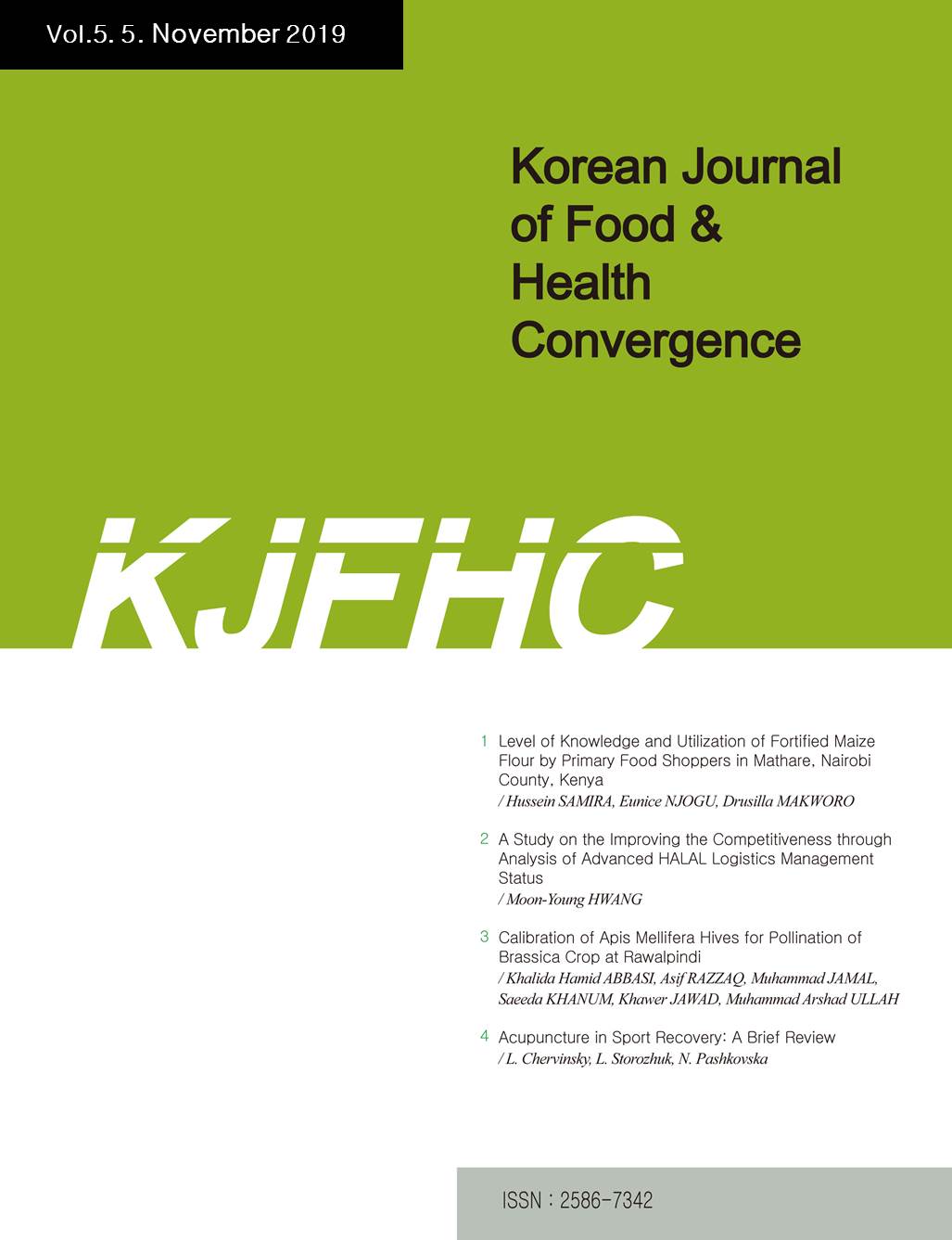- Log In/Sign Up
- E-ISSN2586-7342
- KCI
 E-ISSN : 2586-7342
E-ISSN : 2586-7342
NJOGU, Eunice
OGADA, Irene Awuor
KESHINRO, Olufunke Oluremi
Abstract
Significant low knowledge and poor attitudes on complementary feeding undermine the practices. This study was a cluster randomized controlled trial in which 284 study participants were assigned into two groups. One intervention group and a control group in a ratio of 1:1. Nutrition education on complementary feeding was carried out among the caregivers in the intervention group but the caregivers in the control group were not educated. To determine complementary feeding knowledge and attitudes, data was collected from caregiver at baseline, midline and at endline using researcher-administered questionnaires. Quantitative data were analyzed using SPSS version 22.0. From the analysis, there was a significant difference in complementary feeding knowledge of the caregivers after the intervention. The baseline difference was -0.06, the midline difference was 3.85 the endline difference was 4.00 and the DID of the baseline and endline was 4.06 which was significant at p=0.001. There was a significant difference in the attitude of the caregivers towards complementary feeding at baseline (-0.14), midline (2.09), endline (3.82) and the DID of baseline and endline was 3.96 which was significant at p=0.001. The intervention improved the caregivers' knowledge on complementary feeding and it improved the attitudes of the caregivers towards adequate complementary feeding.
- keywords
- Knowledge, Attitudes, Complementary Feeding, Caregivers, Infants
- Downloaded
- Viewed
- 0KCI Citations
- 0WOS Citations
